National Reconciliation Week is a time to explore how we all can contribute to achieving reconciliation in Australia.
Since last year’s Sorry Day, I lost my father. So many people have said to me, “I’m so sorry for your loss”, and knowing they understood my pain helped, but how do you even begin to express sympathy when it’s to an entire generation of parents and children who were forcibly separated? All I can do is stand in solidarity as an ally, listen to Indigenous voices, and do whatever I can for a more caring and inclusive future. But I am incredibly sorry for the loss and trauma the First Nations people have endured and are enduring, so for this Sorry Day, I stand and say Sorry.
Tania Court
I feel very sad when I think of the past events and wrongs done to the Aboriginal and Torres Strait Islander peoples. I’m sorry for what happened in the past and I look forward to building strong and loving relationships in the future. Together we can achieve everything. <3
Joanne Robinson
Now more than ever, we need to reflect on how we, as a public university, can work towards achieving the aspirations of the Uluru Statement from the Heart: Voice. Treaty. Truth.
Bob Boughton
I wish to celebrate the culture, history and achievements of Aboriginal and Torres Strait Islander people and their continued resilience.
I say sorry for the intergenerational suffering and pain caused by past wrongs and reflect on the injustices that Aboriginal and Torres Strait Islander communities still face today.
Now may we come together in unity and understanding and commit to building a better future together.
Demi
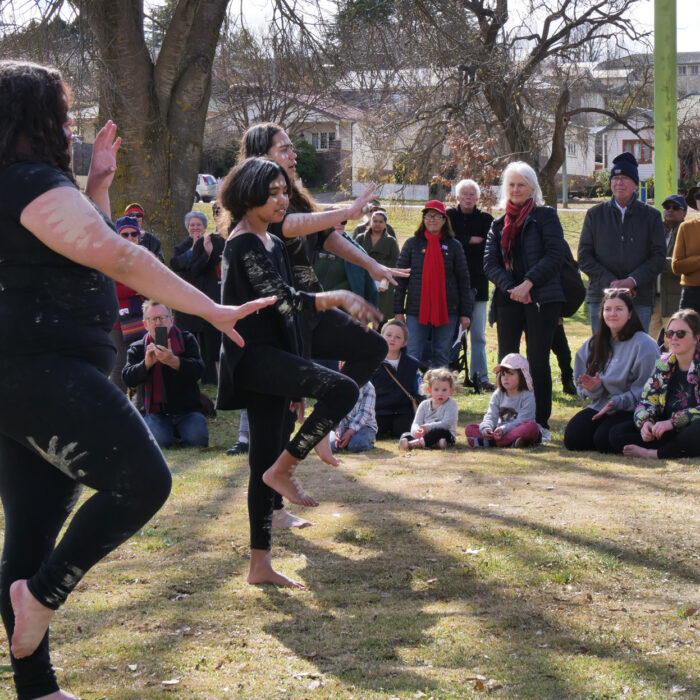
I am proud of the fact that as a nation, we are working collectively and individually to incorporate First Nations’ perspectives into our national identity.
I appreciate and acknowledge our first nations people and apologise to those who have been mistreated in our country in the past.
Chloe Green
Acknowledging the past and learning from it will lead to a better, brighter future. We have such a rich culture to learn from, it would be silly not to. “Now more than ever,” is a reminder to all of us that no matter what, the fight for justice and the rights of Aboriginal and Torres Strait Islander people will—and must—continue. There is still such a long way to go to ensure everyone is treated the way they deserve – especially this nation’s first people.
Alahna Fiveash
Always was, always will be.
Sianna Madigan
I feel for your people for your treatment over time. It’s a disgrace and not acceptable on any level. Your culture brings so much to the lives of all Australians and is so important. We should be proud of our first people and celebrate them.
TR
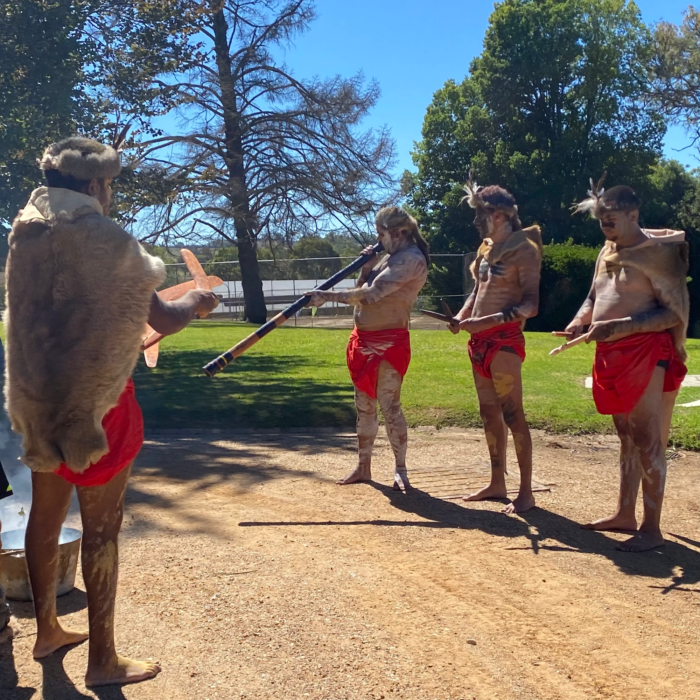
Reconciliation is more than a nationwide journey. Reconciliation is a personal journey too. We are responsible for learning the true history of Australia, and understanding the privileges we carry. Today, and every day, I recognise Aboriginal and Torres Strait Islanders as the custodians of the land I walk and learn upon. May our actions towards the fight against inequality reflect the voices of our First Nation People; and may their culture, history, and stories forever be entrenched within the education of future generations. #AlwaysWasAlwaysWillBe
Sara Perry
Recognising, respecting and appreciating the First Peoples of Australia and their rich history and culture is an ongoing process for all Australian’s. I am deeply sorry that our shared history has been filled with so much turmoil, misunderstanding, mistrust and horrific violence. I hope one day to see the full implementation of the Uluru Statement of the Heart. Always was, always will be.
Lara Glasson
Saying sorry is the beginning of moving forward together. I hope that we can all come together and celebrate being in this wonderful country together. And as I still see on some posters “Always Was. Always Will Be.” Treaty will be a positive step forward.
Alison Lemon
Sorry isn’t enough. Now, more than ever, we need to be working not just at a federal level, but also at a personal level, to close the gap that colonisers created. First Nations people deserve a voice, they deserve to be heard, and their culture and history needs to be respected, acknowledged, and protected.
Ash Taylor
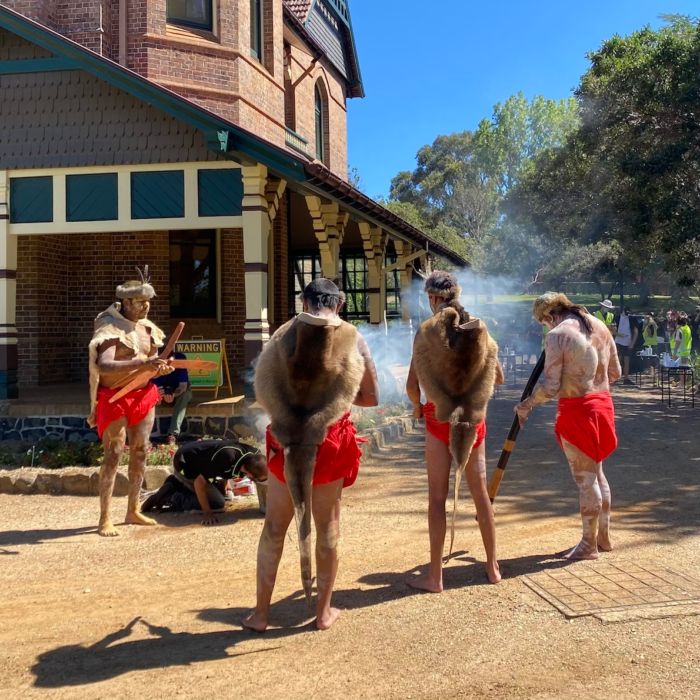
National Reconciliation week is just a very special event for every Australian, we honor the Islander peoples, as the first of the land.
We salute your achievements and contribution and the history of our country.
Lydia
When I think about reconciliation, I’m grateful for how much this movement has given to me personally in the form of opportunities to learn about Australia’s First Peoples and their deep understanding of place. I look forward to a time when this great gift we have in front of us as a country is adopted, understood and valued the way it should be. Every recognition and moment of reconciliation moves us closer to that time.
Frances Finn
As a nation we continue to connect and build reciprocal relationships that bring together cultures from here and around the world. The journey we take together will lay the foundations for reconciliation through future generations which embrace each other’s differences and to work together to achieve a common goal, which is accepting of our differences, our colour and our backgrounds. Truth telling may at times be a hard conversation but is essential to heal emotional, mental and physical wounds and scars from years and decades of division. Unification through reconciliation, diversity, and acceptance will lay the foundations for reconciliation now and into the future.
Errol Clarke
For many people, it is hard to realise that the foundation on which Australian society is built was paid for with the blood and suffering of this counties First Nations peoples. It is hard for many to admit that the country we love, call home and feel connected to was taken from others who were and are more connected to this country than we are. Even those of us who do not feel they have a direct history connected to that pain still stand on foundations built on it.
I am sorry.
Kaelem Burgess
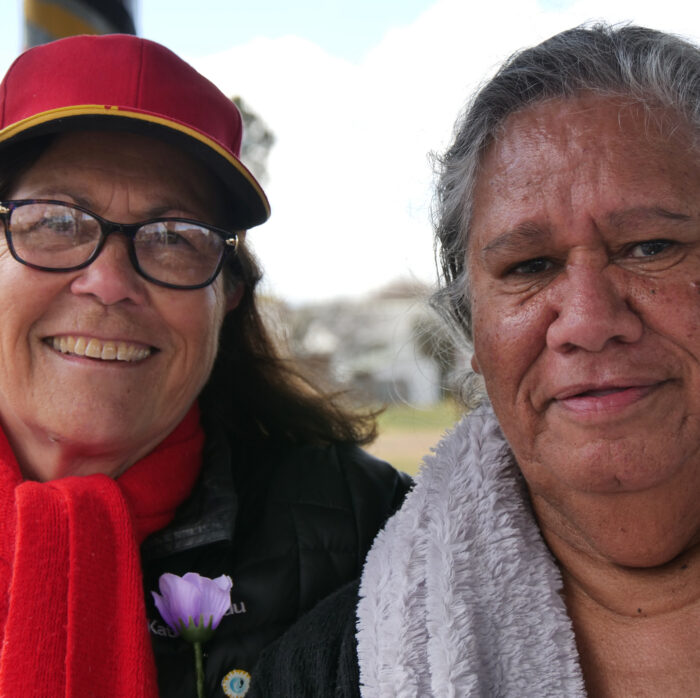
I have hope that we as a nation – of individuals, families, organisations, and communities – can genuinely acknowledge and redress our terrible colonial history, its continued impacts, and today’s ongoing injustices for Indigenous Australians, and walk forward together with shared purpose and pride. Always was, always will be.
CM
To recognise the stories of the past and how they have affected the present, is to walk forward as an individual and as a society. As an individual I stand with deep respect for furthering cultural understanding and empowerment of First nations People. Every step towards reconciliation is important and Sorry Day is a time when we can stand together and acknowledge this nation’s First People and the continued journey of healing that all Australians must share.
Tess Cullen
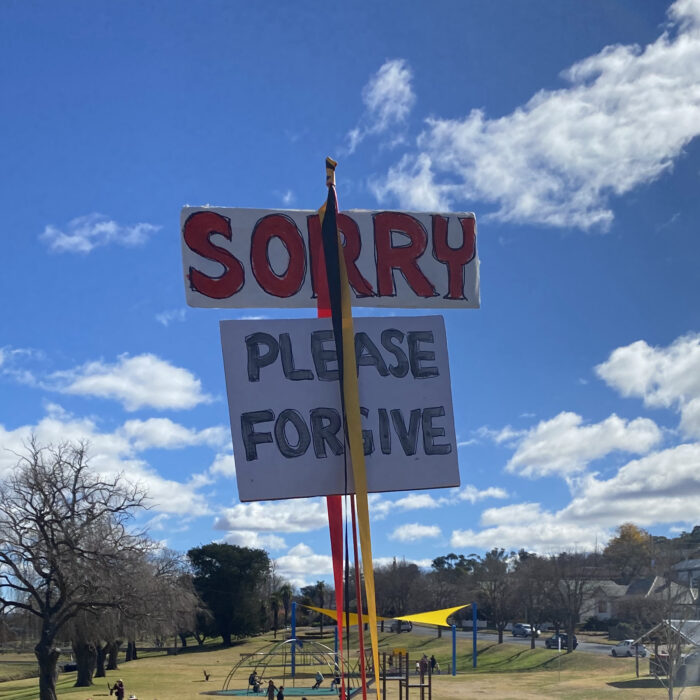
Nganhu waranayimanha nurragi – We are all walking home together. (Wajarri-English)
Loyola McLean
Sorry means it won’t happen again but the impacts for First Nations people are ongoing, so saying sorry is not enough. As a social worker, I am part of a profession who has been complicit in enforcing policies that have created significant trauma, loss and grief and some of these practices are ongoing through the justice and child protection systems. Current policy approaches have not worked and First Nations people have presented us with a way forward through the Uluru Statement from the Heart. I am committed to de-colonising my practice through self-determination approaches, listening to First Nations people and standing in solidarity. I also commit to supporting First Nations people and communities through tangible actions such as supporting First Nation’s led businesses, arts and music whenever I can. We have so much to learn if we are willing to just listen.
Laura Murray
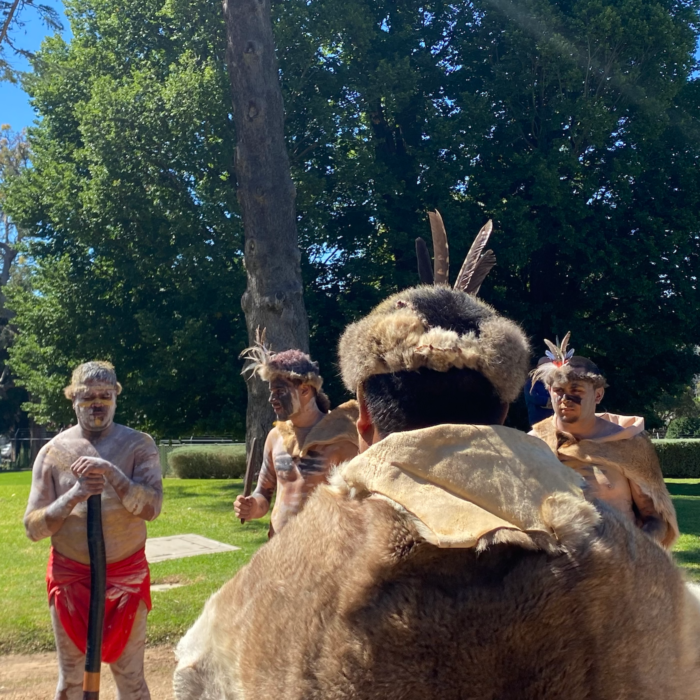
2024 marks twenty three years of Reconciliation Australia and almost three decades of Australia’s formal reconciliation process.
Find out more about National Reconciliation Week #NowMoreThanEver
My appreciation for reconciliation is based around one truth – your story is my story, and my story is your story. When I think of myself as an Australian today, part of my identity stems back over 60,000 years of the world’s oldest continuing culture. Part of it came by boat some 250 years ago. Part of it battled its own wars before that, in what is now the United Kingdom, and part of it is reflected in the faces of our communities, of those who have arrived since.
Understanding and appreciating that the ongoing and very recent horrors of colonisation and the Frontier Wars is our shared history, is crucial in the process of reconciliation. These things happened and they are still very much felt, both institutionally, and through identity. They are our story, but they do not diminish our capacity to move forward together.
Ben Bible
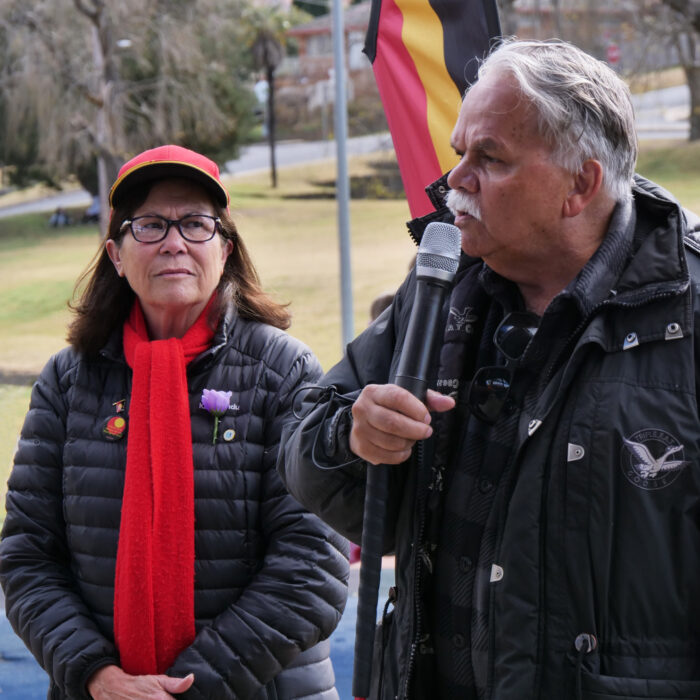
Now More Than Ever’ – To acknowledge what has been, to learn from the injustices of the past, and think about how we can all go forward with respect and a shared purpose for a better future. Always was, always will be.
Sam Crick
Sorry can’t just be a word. The original custodians of this land need to be heard today and every day. We need a treaty, now!
Luke Fowler
Always was, always will be our Aboriginal land. Wishing all my brothers and sisters a peaceful reconciliation week.
Nicola
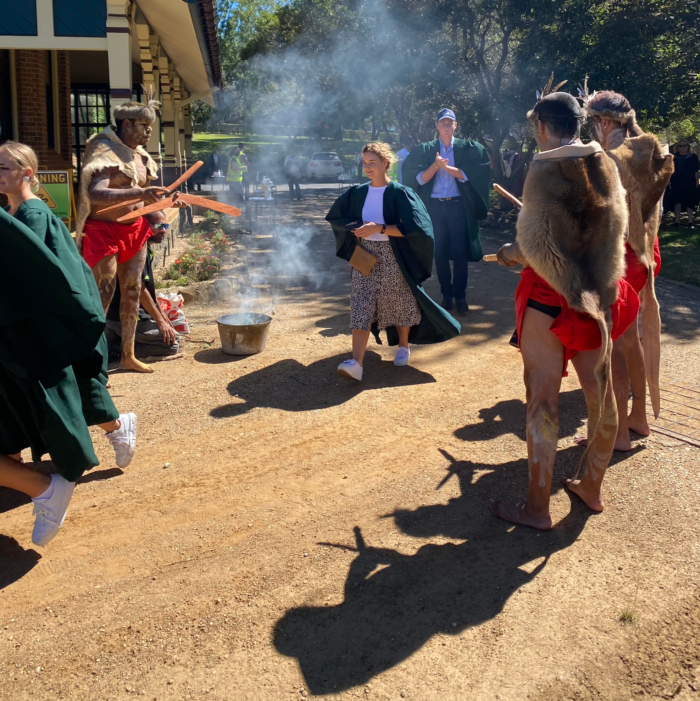
Celebrating the richness of Australia’s Indigenous cultures is not just an opportunity for pride, but a call to action for reconciliation.
Australians can stand on the shoulders of one of the world’s oldest and richest cultures, that of the Aboriginal and Torres Strait Islander peoples. Recognising and honouring their enduring sovereignty and cultural heritage is not just a cause for celebration but a fundamental step towards reconciliation.
As we mark decades of formal reconciliation, it’s imperative to grasp the complexities of history, and to understand the deep-rooted ramifications of colonisation – Acknowledging the injustices of the past and their ongoing repercussions is paramount for building a future founded on justice and equality. For that, education can be key.
Why not move beyond mere acknowledgment and take tangible actions towards reconciliation? This includes amplifying Indigenous voices, advocating for their rights, and actively supporting initiatives that foster cultural understanding and empowerment.
In our pursuit of inclusivity and peace, we can ensure that our efforts are informed by a deep respect for the diverse experiences and aspirations of Indigenous communities. Together, we can lead with kindness to forge a path towards a more just and reconciled Australia. Let us help cement our value and uplift our country.
Rami Bahnas
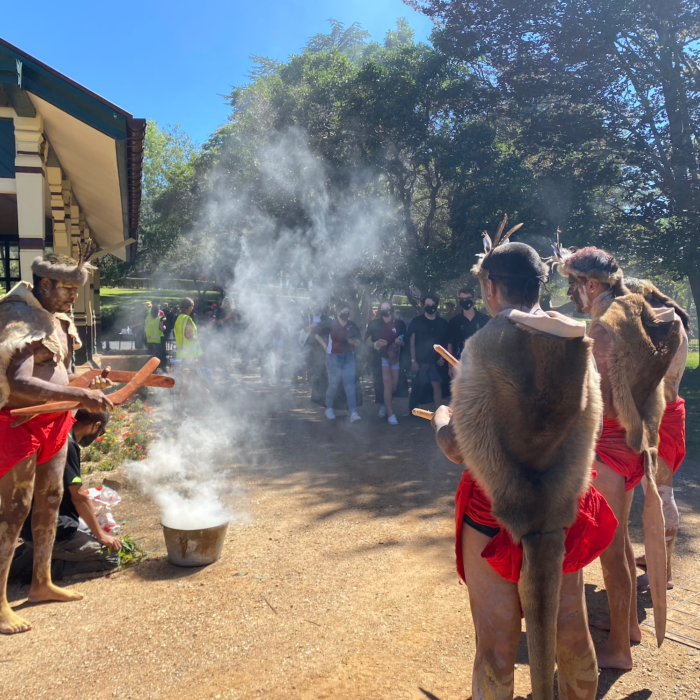
National Reconciliation Week is for everyone, to reflect, to love, and live for the other weeks of the year. <3
Linda McNeil
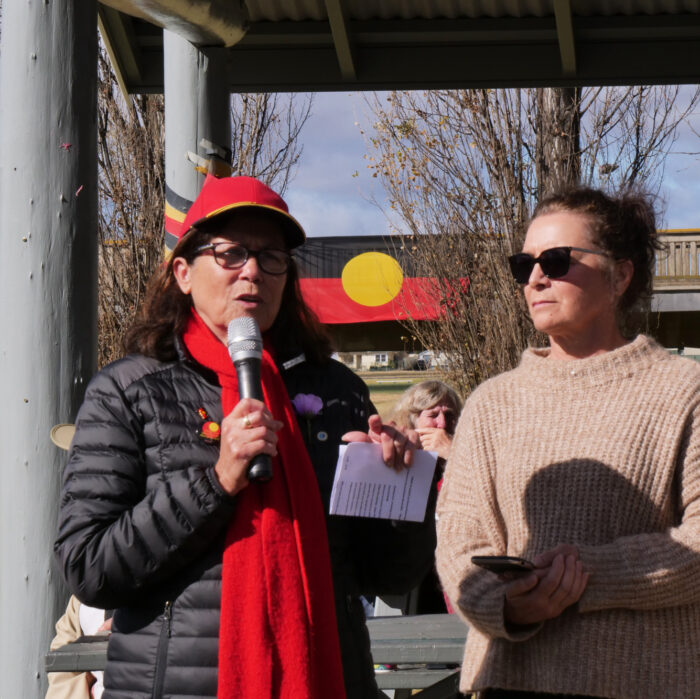
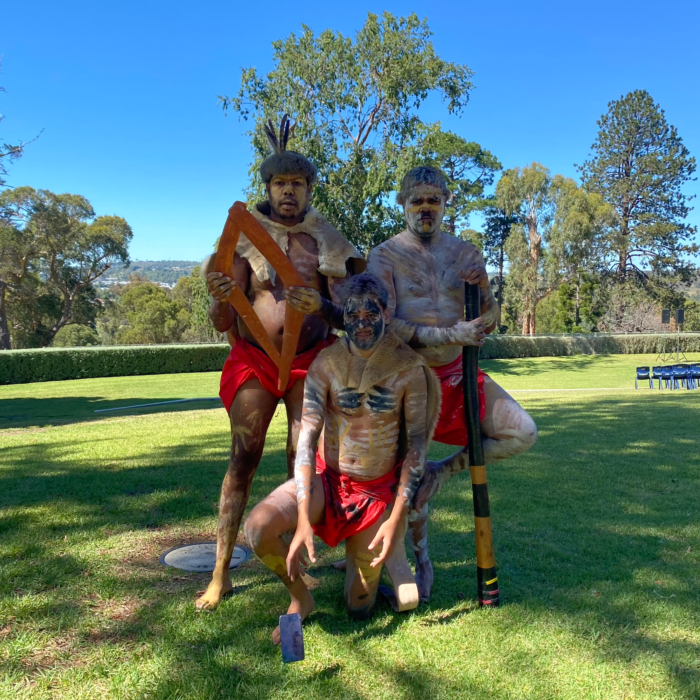
The more you learn, the more you grieve. The more you hear, the more your ears burn.
Our collective guilt and hesitation is based on truth. Our collective wealth is based on a blood soaked history. Our opportunities and “fair go-s” were stolen goods and unfair bargains. What land rates and what rent is paid to a massacred people? You could say crudely that only a few violent souls ‘cleared the way’. But could you say the plunder was not shared out or sold on? Our greed incited and endorsed bloodshed. If I dwell on this, I would mourn the very foundations of what I had considered a peaceful society.
How can we be sorry if we don’t understand? if we don’t regret? if we don’t feel the pain as they know the pain… until the pain is ours too. Until those uncles, aunts, fathers, daughters, sons, mothers become ours too. Until we see face-to-face like it were a mirror, we won’t understand the true price. the true value of reconciliation and friendship. I have been distant and I have looked away. And I will reflect on how I can learn and listen and yearn for more.
I’m sorry.
Rae Ainsworth
I hope that Australia and all its people will recognise and acknowledge the hurt and pain experienced by so many first nations people.
I also hope that we continue to educate all people about the history of Aboriginal and Torres Strait Islander people; the history is both very beautiful and filled with heartache. Always Was. Always Will Be.
Anonymous
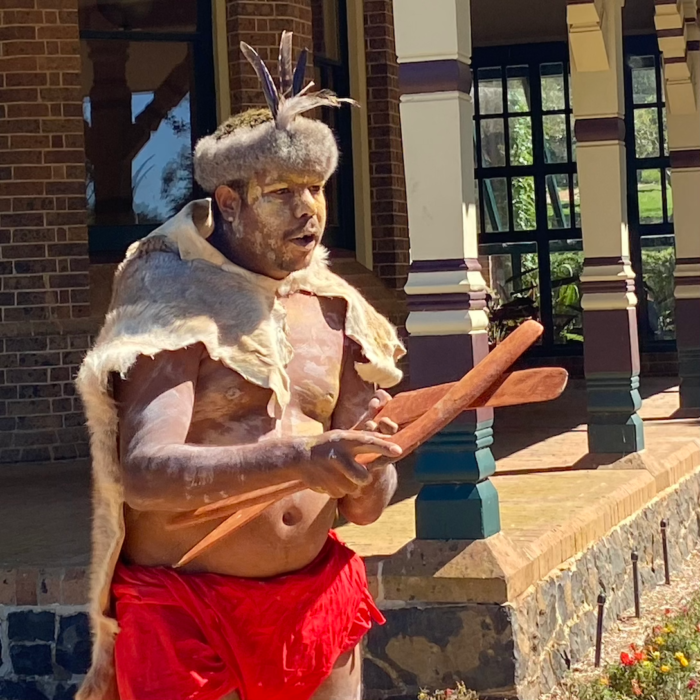
Photos are from a range of UNE events including; a Smoking Ceremony and traditional dance for Welcome Ceremony at Booloominbah, and the community Bridge Walk at Civic Park in Armidale.